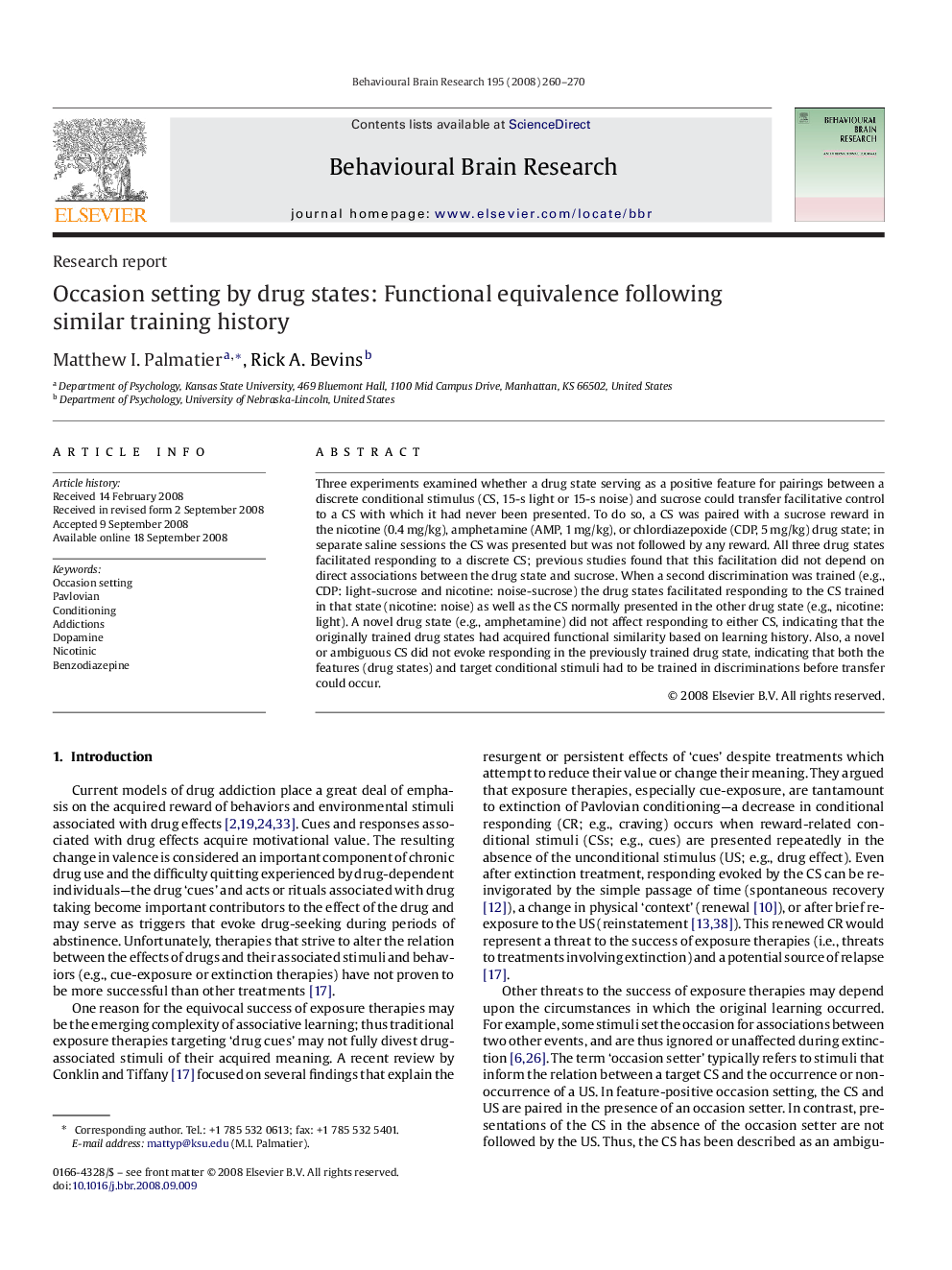| کد مقاله | کد نشریه | سال انتشار | مقاله انگلیسی | نسخه تمام متن |
|---|---|---|---|---|
| 6260248 | 1290065 | 2008 | 11 صفحه PDF | دانلود رایگان |

Three experiments examined whether a drug state serving as a positive feature for pairings between a discrete conditional stimulus (CS, 15-s light or 15-s noise) and sucrose could transfer facilitative control to a CS with which it had never been presented. To do so, a CS was paired with a sucrose reward in the nicotine (0.4Â mg/kg), amphetamine (AMP, 1Â mg/kg), or chlordiazepoxide (CDP, 5Â mg/kg) drug state; in separate saline sessions the CS was presented but was not followed by any reward. All three drug states facilitated responding to a discrete CS; previous studies found that this facilitation did not depend on direct associations between the drug state and sucrose. When a second discrimination was trained (e.g., CDP: light-sucrose and nicotine: noise-sucrose) the drug states facilitated responding to the CS trained in that state (nicotine: noise) as well as the CS normally presented in the other drug state (e.g., nicotine: light). A novel drug state (e.g., amphetamine) did not affect responding to either CS, indicating that the originally trained drug states had acquired functional similarity based on learning history. Also, a novel or ambiguous CS did not evoke responding in the previously trained drug state, indicating that both the features (drug states) and target conditional stimuli had to be trained in discriminations before transfer could occur.
Journal: Behavioural Brain Research - Volume 195, Issue 2, 22 December 2008, Pages 260-270